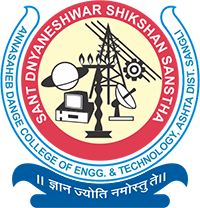Programme Educational Objectives (PEOs)
The Programme Educational Objectives for Mechanical Engineering are,
PEO1 : Provide solutions to the problems of mechanical and relevant engineering disciplines using the knowledge of fundamental science and skills developed during graduation studies.
PEO2 : Demonstrate an understanding about selected specific areas of mechanical engineering in career development.
PEO3 : Communicate and function effectively using professional ethics, social and environmental awareness.
PEO4 : Engage in lifelong learning, for effective adaptation to technological changes.
Programme Outcomes (POs)
Students of Mechanical Engineering Graduates will be able to:
1.Engineering knowledge: Apply the knowledge of mathematics, science, engineering fundamentals, and an engineering specialization to the solution of complex engineering problems.
2. Problem analysis: Identify, formulate, review research literature, and analyze complex engineering problems reaching substantiated conclusions using first principles of mathematics, natural sciences, and engineering sciences
3. Design/development of solutions: Design solutions for complex engineering problems and design system components or processes that meet the specified needs with appropriate consideration for the public health and safety, and the cultural, societal, and environmental considerations.
4. Conduct investigations of complex problems: Use research-based knowledge and research methods including design of experiments, analysis and interpretation of data, and synthesis of the information to provide valid conclusions.
5. Modern tool usage: Create, select, and apply appropriate techniques, resources, and modern engineering and IT tools including prediction and modeling to complex engineering activities with an understanding of the limitations.
6. The engineer and society: Demonstrate understanding of contemporary knowledge of engineering to assess societal, health, safety, legal and cultural issues and the consequent responsibilities.
7. Environment and sustainability: Understand the impact of the professional engineering solutions in societal and environmental contexts, and demonstrate the knowledge of, and need for sustainable development.
8. Ethics: Apply ethical principles and commit to professional ethics and responsibilities and norms of the engineering practice.
9. Individual and team work: Function effectively as an individual, and as a member or leader in diverse teams, and in multidisciplinary settings.
10. Communication: Communicate effectively on complex engineering activities, write effective reports, make effective presentations, and give and receive clear instructions.
11. Project management and finance: Demonstrate knowledge and understanding of the engineering and management principles and apply these to manage projects and in multidisciplinary environments.
12. Life-long learning: Recognize the need for, and have the ability to engage in independent and life-long learning in the broadest context of technological change.
Program Specific Outcomes (PSOs):
PSO1: An ability to find out, articulate the local industrial problems and solve with the use of mechanical engineering tools for realistic outcomes.
PSO2: Apply the knowledge of mechanical engineering domains to design and analyze the products or processes.
PEO – PO Mapping :
| PEOs | Program Outcomes | |||||||||||||
| 1 | 2 | 3 | 4 | 5 | 6 | 7 | 8 | 9 | 10 | 11 | 12 | PSO1 | PSO2 | |
| PEO 1 | 3 | 3 | 2 | 2 | 2 | 2 | 3 | 3 | ||||||
| PEO 2 | 3 | 3 | 3 | 3 | 2 | 3 | 3 | 2 | 2 | |||||
| PEO 3 | 3 | 3 | 3 | 3 | 2 | 2 | ||||||||
| PEO 4 | 2 | 3 | 2 | 2 | 3 | 1 | 1 | |||||||

